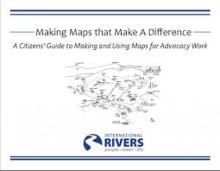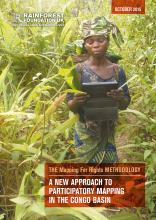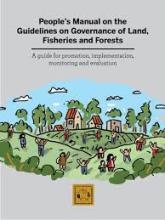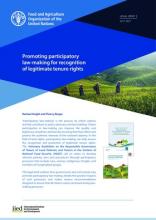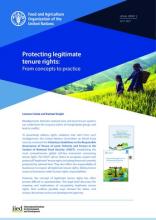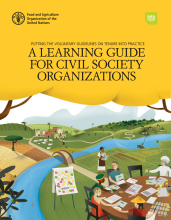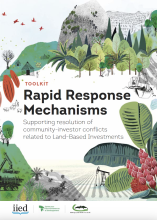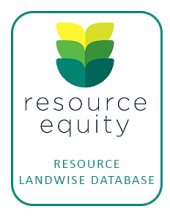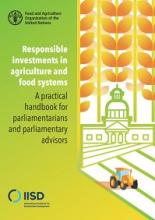Resources for Advocacy
Making Maps that Make A Difference
The purpose of this guide is to introduce the process of mapping for communities facing destructive development projects. It also provides information on how to use maps in a campaign.
Mapping For Rights' Mapping Methodology: A new approach to participatory mapping
This guide presents the 'Mapping for Rights' approach, which combines participatory mapping techniques, facilitation and hands-on support with the application of relevant and available technology. This combination of tools, guidance and equipment enables communities to identify advocacy goals that their maps could support. The maps are designed to provide a snapshot of the communities’ reality, including information on their history and socio- economic situation and demonstrate occupation and use of specific areas by communities.
People’s Manual on the Guidelines on Governance of Land, Fisheries and Forests: A guide for promotion, implementation, monitoring and evaluation
The manual explains how to use the Voluntary Guidelines on Responsible Governance of Tenure in everyday life to protect the rights of peasants and other communities.
Promoting participatory law-making for recognition of legitimate tenure rights
"Participatory law-making” is the process by which citizens actively contribute to policy advocacy and law-drafting. Citizen participation in law-making can improve the quality and legitimacy of policies and laws by ensuring that they reflect and protect the authentic interests of the national citizenry. In the field of land rights, participatory law-making can help ensure the recognition and protection of legitimate tenure rights. The Voluntary Guidelines on the Responsible Governance of Tenure of Land Fisheries and Forests in the Context of National Food Security (VGGT) call on states to develop relevant policies, laws and procedures through participatory processes that include men, women, Indigenous Peoples and members of marginalized groups.
Protecting legitimate tenure rights: From concepts to practice
Putting the Voluntary Guidelines into Practice: A Learning Guide for Civil Society Organizations
This learning guide provides civil society organizations (CSOs) with a methodology and a set of materials to undertake training on the VGGT with civil society actors from the grassroots to the national level. Trainees will learn how to apply the VGGT to actual tenure governance challenges.
Rapid Response Mechanisms: Supporting resolution of community-investor conflicts related to Land-Based Investments
Often, approaches to investment-related land rights violations are reactive, rather than proactive and preventative: legal support is usually provided after communities have been negatively impacted, displaced or evicted — and after lives have been lost, property destroyed, local waters and soils polluted, and communities devastated. In such cases, legal support has a limited chance of reversing the damage caused.
To address this challenge, rapid response mechanisms (RRMs) are designed to ensure that community members can reach out for legal and technical help the moment a conflict arises, and/or as soon as their rights are threatened or violated — and for advocates to respond quickly, in order to preventatively resolve a potential conflict before major harm has been done and before it escalates.
This toolkit, based on direct field experience, provides guidance on how advocacy organisations might create rapid response mechanisms in a wide range of contexts.
Resource Securing community land and resource rights in Africa: A guide to legal reform and best practices
This guide explains key aspects of law and land rights that are important for securing community ownership and control of land and resources – also referred to as secure land and resource tenure. It explains how to identify and create opportunities for law reform and offers examples of reforms that have taken place in several African countries.
Respecting the human rights of communities: a business guide for commercial wind and solar project deployment
This guide provides companies involved in wind and solar projects with information and strategies to identify, prevent, mitigate, and account for adverse human rights impacts that they cause, contribute to, or are directly linked to through their operations, products, or services, by virtue of their business relationships. It may also be useful for investors, business partners, government actors, civil society organizations, communities, and other stakeholders. It comes with a Legal Risk Primer.
Responsible investments in agriculture and food systems – A practical handbook for parliamentarians and parliamentary advisors
This Handbook provides a comprehensive and systematic overview of the role that Parliamentarians and Parliamentary Advisors can play in the creation of reliable, coherent, and transparent “enabling environments” in the range of areas related to investment in agriculture and food systems. It does so through guidance notes, examples of good practices, and very practical indications, and sets out key stages of processes and mechanisms for MPs and advisors to consider while promoting responsible investment in agriculture and food systems.


